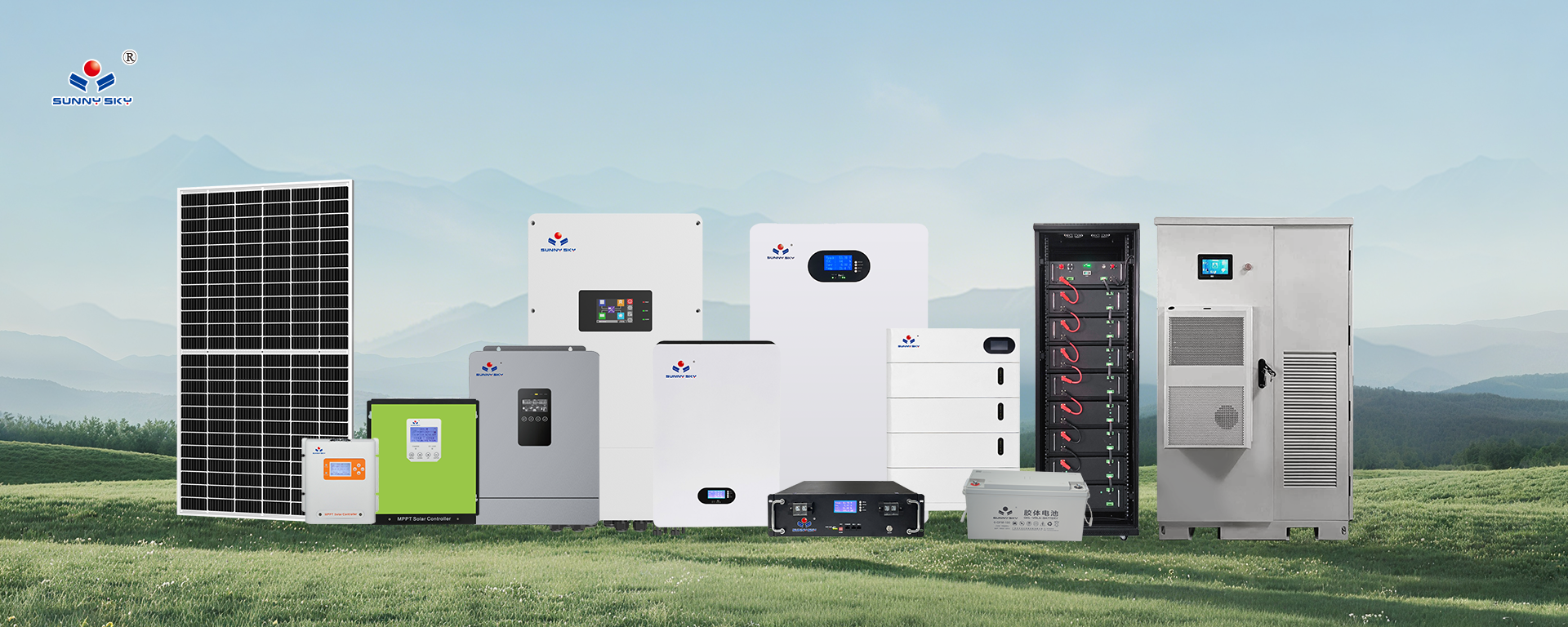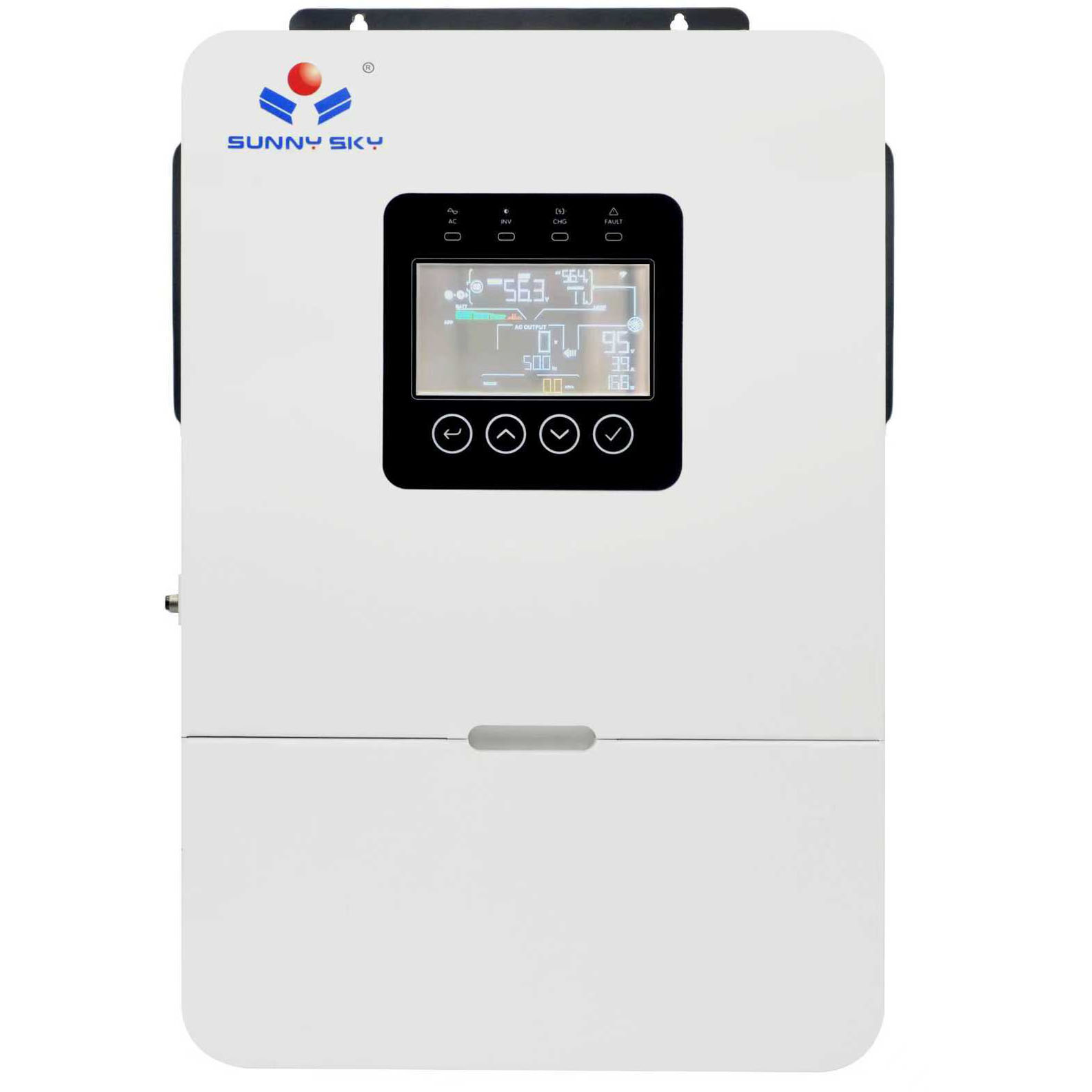Hybrid Solar Inverter technology represents a versatile solution in the world of renewable energy, blending the best of both grid-tied and off-grid systems to optimize energy use in homes and businesses. This innovative approach allows for seamless integration of solar power with battery storage, enabling users to store excess energy for later use while maintaining connectivity to the electrical grid. As energy demands evolve, comparing hybrid solar inverters with other options like grid-tied or off-grid systems reveals key advantages and trade-offs that can guide consumers toward the best choice for their needs.

Comparing Hybrid Solar Inverters with Grid-Tied Inverters
Hybrid Solar Inverters offer greater flexibility than traditional grid-tied inverters, which primarily convert solar energy for immediate use or export to the grid without storage capabilities. For instance, a grid-tied inverter might efficiently handle "Solar Power Systems" by feeding surplus energy back to the utility, but it lacks the energy storage solutions inherent in hybrid models. This means that during outages, grid-tied systems often shut down for safety, whereas hybrid inverters can switch to stored power seamlessly. On the positive side, grid-tied inverters are typically more cost-effective upfront and simpler to install, making them ideal for areas with reliable grid access. In contrast, hybrid inverters, like those from innovative providers, incorporate features such as bidirectional inverter functionality, allowing energy to flow both ways between the grid and batteries, which enhances overall efficiency and provides backup during peak demand or blackouts. However, this added complexity can increase initial costs and maintenance requirements compared to basic grid-tied options.
Contrasting Hybrid Solar Inverters with Off-Grid Inverters
While off-grid inverters are designed for complete independence from the electrical grid, relying solely on "Renewable Energy Inverters" like solar panels and batteries, hybrid solar inverters provide a middle ground that combines autonomy with grid connectivity. Off-grid systems excel in remote locations where grid access is unavailable, prioritizing self-sufficiency through robust battery storage, but they often require larger, more expensive setups to handle all energy needs without external support. Hybrid inverters, on the other hand, can automatically draw from the grid when solar production is low, reducing the need for oversized batteries and making them more practical for residential use. For example, in a "Residential Solar Inverter" setup, a hybrid model might utilize advanced solar inverter technology to manage energy flow more dynamically, contrasting with off-grid inverters that may suffer from inefficiencies during periods of low sunlight. This flexibility in hybrid systems means lower long-term costs and easier scalability, but they depend on grid stability, whereas off-grid inverters offer true isolation at a higher price point.
Exploring the Benefits and Drawbacks of Hybrid Inverter Technology
Delving deeper into the benefits of hybrid solar inverters, one key advantage is their ability to enhance "Energy Storage Solutions," allowing users to store daytime solar energy for nighttime use, which directly contrasts with the limitations of pure grid-tied systems that waste excess production. Hybrid models also promote energy independence while reducing reliance on fossil fuels, making them a superior choice for environmentally conscious consumers compared to off-grid options that can be less efficient due to their all-or-nothing approach. However, potential drawbacks include the higher initial investment and the need for compatible components, such as specific battery inputs and PV connections, which might not be as straightforward as in dedicated off-grid setups. When weighing these factors, hybrid inverters stand out for their "Hybrid Inverter Benefits," like improved energy management through features such as remote monitoring via USB WiFi, but they require careful consideration of local energy policies and infrastructure. Ultimately, for those seeking a balanced, future-proof solution in solar power systems, hybrid inverters represent a compelling evolution that merges the reliability of grid-tied technology with the resilience of off-grid designs, paving the way for more sustainable and adaptable energy strategies.







